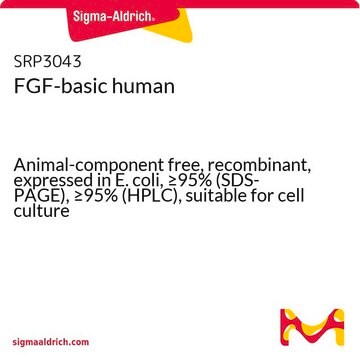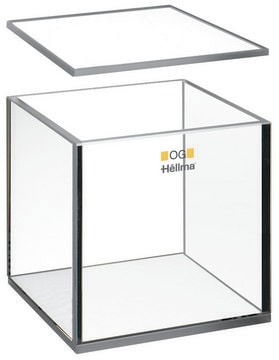F5305
Monoclonal Anti-Fibroblast Growth Factor-Basic antibody produced in mouse
clone 10060, purified immunoglobulin, lyophilized powder
Synonym(e):
Anti-FGF2
About This Item
Empfohlene Produkte
Biologische Quelle
mouse
Qualitätsniveau
Konjugat
unconjugated
Antikörperform
purified immunoglobulin
Antikörper-Produkttyp
primary antibodies
Klon
10060, monoclonal
Form
lyophilized powder
Speziesreaktivität
human
Methode(n)
capture ELISA: 2-8 μg/mL
Isotyp
IgG2a
UniProt-Hinterlegungsnummer
Lagertemp.
−20°C
Angaben zum Gen
human ... FGF2(2247)
Suchen Sie nach ähnlichen Produkten? Aufrufen Leitfaden zum Produktvergleich
Allgemeine Beschreibung
Monoclonal Anti-Fibroblast Growth Factor Basic recognizes human Fibroblast Growth Factor Basic. It also recognizes bovine bFGF. It shows 0.2% cross-reactivity with bovine FGF acidic. It does not react with human FGF acidic, FGF-4, -6 or -7.
Immunogen
Anwendung
Physikalische Form
Haftungsausschluss
Not finding the right product?
Try our Produkt-Auswahlhilfe.
Ähnliches Produkt
Lagerklassenschlüssel
13 - Non Combustible Solids
WGK
WGK 1
Flammpunkt (°F)
Not applicable
Flammpunkt (°C)
Not applicable
Persönliche Schutzausrüstung
Eyeshields, Gloves, type N95 (US)
Analysenzertifikate (COA)
Suchen Sie nach Analysenzertifikate (COA), indem Sie die Lot-/Chargennummer des Produkts eingeben. Lot- und Chargennummern sind auf dem Produktetikett hinter den Wörtern ‘Lot’ oder ‘Batch’ (Lot oder Charge) zu finden.
Besitzen Sie dieses Produkt bereits?
In der Dokumentenbibliothek finden Sie die Dokumentation zu den Produkten, die Sie kürzlich erworben haben.
Unser Team von Wissenschaftlern verfügt über Erfahrung in allen Forschungsbereichen einschließlich Life Science, Materialwissenschaften, chemischer Synthese, Chromatographie, Analytik und vielen mehr..
Setzen Sie sich mit dem technischen Dienst in Verbindung.








